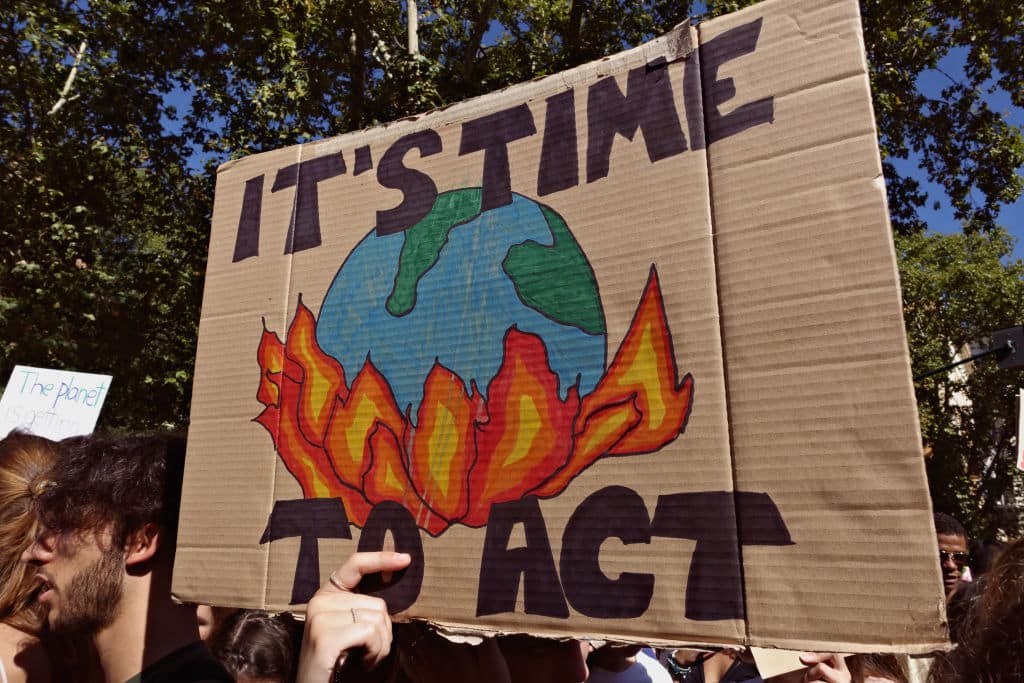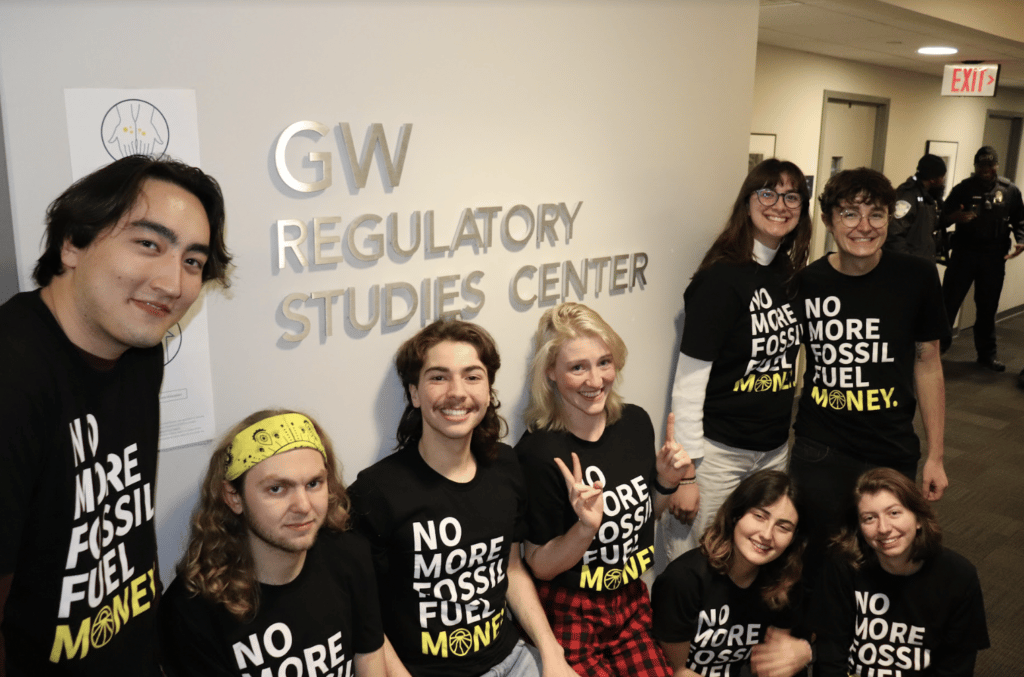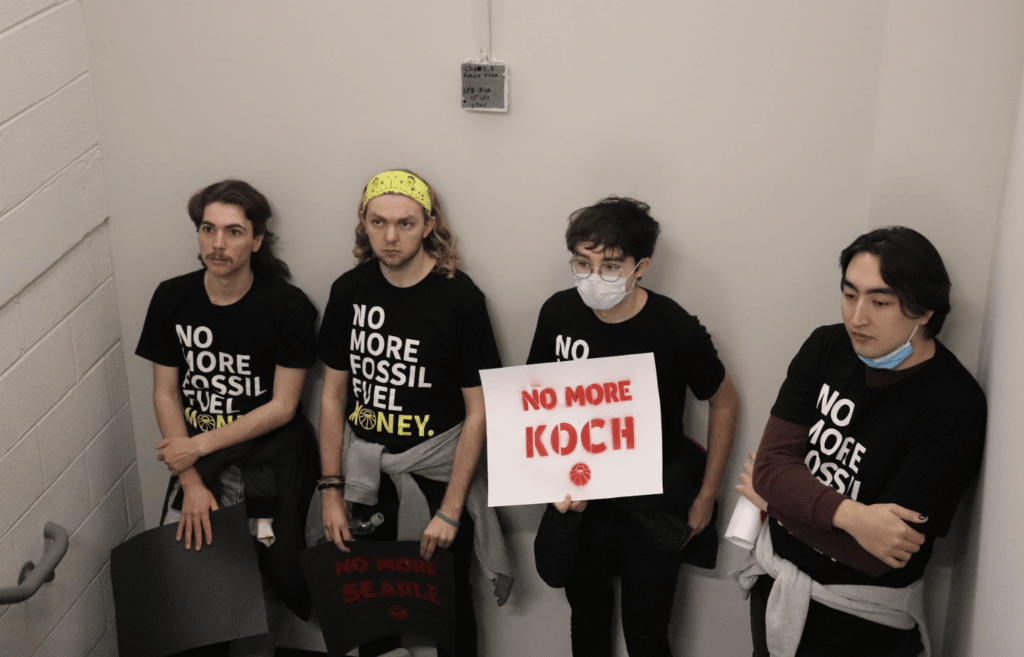If the COP27 Won’t Act, Students Will: Why We Demand Fossil Free Research

 Why you can trust us
Why you can trust us
Founded in 2005 as an Ohio-based environmental newspaper, EcoWatch is a digital platform dedicated to publishing quality, science-based content on environmental issues, causes, and solutions.
By Jake Lowe, Fossil Free Research and Bella Kumar, Sunrise GW
As we write, representatives from nearly 200 countries are convened at COP27 in Sharm El-Sheikh to negotiate our futures. Once again, critical negotiations are soaked in oil – there are more lobbyists from the fossil fuel industry than delegates from the ten countries most impacted by climate change combined. The parasitic influence of the fossil fuel industry reaches far beyond COP27. Each year, the fossil fuel industry funnels hundreds of millions of dollars to prestigious universities around the world to fund climate-related research. Big Oil leverages these investments to greenwash its reputation and corrupt the climate research we need to inform a just transition. If world leaders won’t take a stand against the fossil fuel industry, we will. That’s why we, alongside students from across the US, UK, and Canada, are taking action this week.

Photo credit: Liam Edmonson
Fossil Free Research is an international movement working to expose and dismantle Big Oil’s toxic influence on climate research by advocating for institutions to adopt a Fossil Free Research policy – a ban on fossil fuel industry funding for climate change-related research. Over the past week, 200 students from roughly a dozen universities took action to demand fossil free research on their campuses. Actions included an occupation of fossil fuel industry-funded Regulatory Studies Center (RSC) at George Washington University, a campus rally at Cambridge University, and a banner drop at the University of Toronto. The week of action concluded on Thursday after students from Harvard University occupied Massachusetts hall, which houses both the president and the provost responsible for research.
Both of us occupied the RSC on Monday. We sat in to stand up against the complacency of our university in the greatest crisis of our time. Alongside seven of our peers, we held the space for twelve hours, representing the twelve years the RSC has spent laundering the George Washington University name to obstruct climate action. The RSC, which has accepted a combined total of over $6 million from Koch, Exxon, and other funders of the climate change counter-movement since it was founded in 2009, is a hub for deregulation and climate denial. According to a report by Public Citizen, 96 percent of public comments offered by the RSC advocate for deregulation. In one instance, the RSC influenced the EPA’s decision to radically decrease the figure used to measure the social harm of carbon emissions in environmental regulations.

The occupation was a whirlwind of emotion. We looked members of the RSC in the eyes as they exited the building and held our ground in the face of intimidation from the university administration. A campus police officer confessed to feeling guilty for writing down our names as we pleaded for GW to take our futures seriously. We passed the time learning more about the RSC, sharing our experiences that compelled us to take action, and singing songs together. Thanks to a constant stream of visitors and an outpouring of virtual support from around the world, our spirits remained high throughout. If only for 12 hours, we transformed a space that’s been used for over a decade to propagate climate delay into a place for radical imagination, solidarity, and hope.
There is nothing unique about the RSC; it is but a small cog in a massive network of university-based climate disinformation, backed by hundreds of millions of dollars, that spans the globe. And the stakes for continuing to enable fossil fueled research are high. We learned from Big Tobacco that industry-funded research, even when disclosed, is disproportionately likely to yield results that favor industry interests. For the fossil fuel industry, this means producing research that downplays the severity of the climate crisis, highlighting climate solutions that threaten industry growth, and dismissing other alternatives. This tendency was confirmed by a recently published study from researchers at Columbia University, which found that natural gas industry-funded university research initiatives are more likely to produce research in favor of natural gas compared to their non-fossil-funded counterparts. By continuing to accept fossil fuel industry funding our universities are complicit in climate misinformation, named by the Intergovernmental Panel on Climate Change as a key barrier to climate action, depriving us of the research we need to inform a just energy transition.

For far too long, Big Oil’s capture of academia has gone largely unnoticed. The fast-growing international movement for Fossil Free Research is firm in its resolve to change this. The more that students and faculty, increasingly aware of the problem, dig into their university’s ties to the fossil fuel industry, the more they uncover. Awareness is followed by the desire to act. Since its release last spring, our landmark letter calling on universities to reject fossil fuel money for climate research has gained over 800 signatures from leading academics and climate professionals around the world, including IPCC authors, Nobel Prize recipients, and University Chancellors. This September, Princeton University made history in its decision to dissociate from 90 oil and gas companies including ExxonMobil, proof that a Fossil Free Research policy is possible. The actions taking place this week on 11 campuses around the world are a testament to the sweeping momentum generated by the Fossil Free Research movement thus far. But we know this is only just the beginning.
When COP27 comes to a close this Friday, we know better than to expect real change from our leaders who remain in the pockets of the fossil fuel industry. Instead, we turn to our fellow members of the Fossil Free Research movement for hope. In less than a year, our movement has shown the world that students and faculty are tired of watching the fossil fuel industry infiltrate the research process. The time for Fossil Free Research is now. Standing together, we are determined to make it happen.
Subscribe to get exclusive updates in our daily newsletter!
By signing up, you agree to the Terms of Use and Privacy Policy & to receive electronic communications from EcoWatch Media Group, which may include marketing promotions, advertisements and sponsored content.

 233k
233k  41k
41k  Subscribe
Subscribe 




